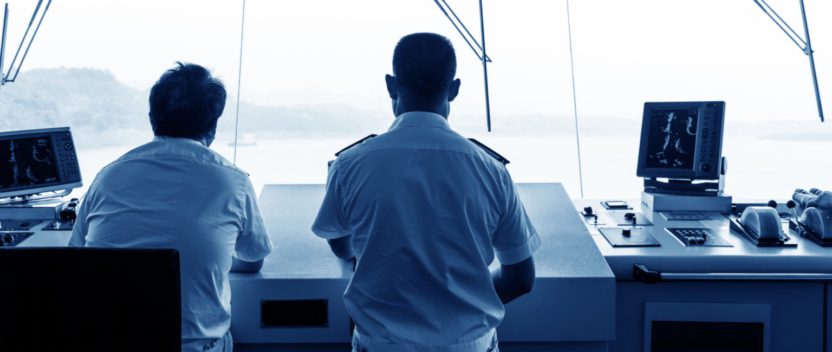The future of crew connectivity – it’s not just about the money
In the years since the first digital services were launched into the maritime communications market, its providers have sought to remind the industry that, the cost of communications at sea have fallen consistently. Owners have held the opposing view. Despite estimates that communications account for just 1% of daily operating costs, the relative cost of bandwidth and equipment meant some owners were unwilling to provide the access that crews so evidently demanded.
However a recently published survey conducted by seafarer’s union Nautilus International has found that restrictions placed on usage are as significant a barrier to greater consumption as cost. Nautilus describes the survey as broadly representative of the industry as a whole and if so, it poses a couple of important questions.
Given the huge investment in bandwidth capacity by Inmarsat, Intelsat and others, will the uptake be sufficient to deliver the required payback and if existing seafarers are unable to take full advantage of the internet at sea, then will the industry be able to achieve its stated aim of attracting new, young professionals if they are effectively denied something as simple as internet access?
Nautilus surveyed nearly 2,000 of its members online to understand attitudes and opinions of both crew – all of them currently employed in sea-going roles – and vessel owners.
The principal conclusion of the research is that many respondents experience restrictions on internet usage, reporting that they were only able to access internet pages pre-approved by their employer and these were predominantly ones used for work purposes. Some restrictions were a result of the companies’ fears about seafarers accessing inappropriate material or causing security issues, with respondents being unable to access age-restricted websites or streaming.
This is despite 84% of the respondents saying that they would be willing to sign an internet usage policy with their company if it meant better access to the internet onboard. Some 86% of respondents also said that they had never received any cyber security training from their employers, which could allay some of these fears. Anecdotal evidence also shows that many respondents want to be able to keep in touch with friends and family, yet more than 40% of respondents are not allowed to video call onboard, meaning companies could be doing much more to address this.
Even so, Nautilus points out the evidence is that individuals are increasingly making employment choices based on the availability of internet access, so it is vital for companies to stay up-to-date with connectivity – and make them available for crew.
The results show that respondents could be influenced by internet provision from employers when making decisions about job opportunities. Nearly two thirds (63%) of respondents said they would or possibly would move to a different company if it provided better onboard connectivity than their present one, with all other conditions being equal.
To be sure, there are issues around internet access for seafarers that go beyond price. The loss prevention community has repeatedly warned that internet access risks increasing rather than relieving isolation as seafarers will tend to browse on their own where once they socialised together.
But the survey results show that despite some companies believing that social interaction is affected by the provision of enhanced communications onboard vessels, seafarers view lack of common language skills as having the highest impact on social interaction onboard – though use of personal devices or spending time alone in cabins follows closely behind.
Of course, cost remains a major issue for both companies and seafarers, something that sits in complete opposition to the messages that the providers consistently put out – that the cost of bandwidth, equipment, services and content continues to fall. Indeed one provider of VSAT services has recently launched a service at such low rates it has prompted questions about the business model that sits behind it.
Many other options are available too. Though controversial, service providers have well-developed plans that enable owners to defray the cost of some of the investment in VSAT by charging the crew to use it. And many appear only too happy to pay, provided that privacy and quality are part of the deal.
In other cases, owners offer internet access completely free, though the logistics of providing coverage in what conditions ranging from congested waters to ‘edge of the network conditions’ mean that access must be controlled for practical reasons.
Nautilus also cites the ILO Maritime Labour Convention which recommends that ‘reasonable access’ to ship-shore telephone, email and internet facilities, at a ‘reasonable’ charge, is now part of the responsibility of the ship operator. However, 67% of survey respondents are still unaware of this, and are fairly evenly split on any improvements they have seen since the Convention’s introduction.
This may be because the above is little more than a recommendation, contained in the Code to the Convention and not considered mandatory.
Nonetheless, more than one vendor describes the MLC as the driver to installations for crew calling – because crew are increasingly aware of it. In fact, some owners believe that the new VSAT capacity coming into the maritime market will primarily be to the benefit of crew rather than business users.
Many owners are well aware of the need to offer internet access as a means of retaining crew and some believe that the future of this market will see more on-demand apps and content. In their defence they also point out the tension between free and paid-for services, with crew prepared to wait until they are in port or near land and use local terrestrial networks.
Cultural differences are also highly significant in determining whether crew adopt communications services. The large numbers of Filipino crew and their close connections to family means they will use services more than some North Asian nationalities. There is a clear divide between shipowning nations in some emerging markets as to whether they are behind the curve or in line with the broader global trends.
Shipmanagers also struggle to interest owners in new services – especially if they go beyond what is considered the minimum necessary level of provision. In a tough market, owners must balance investment in new services alongside the imperatives of debt pay down and essential maintenance.
As Nautilus points out, placing limitations on internet access could be damaging for the industry in the longer term. As technology becomes increasingly invaluable to personal and professional life, many young people would consider a career with little or limited access to internet an unattractive option.
Companies across the world give their employees access to the internet and regulate this to ensure it is used professionally and securely, and vessels should be no different. Most office-based employees would find it very strange to hear that their internet access was restricted to a select number of business-related sites simply because of concerns that they may access adult or restricted content or stream content.
Instead, at a time when shipping is focussing on investing in the future workforce, there is a need to invest now in the future of the industry. Improved access to communications should play a central part in that future.


